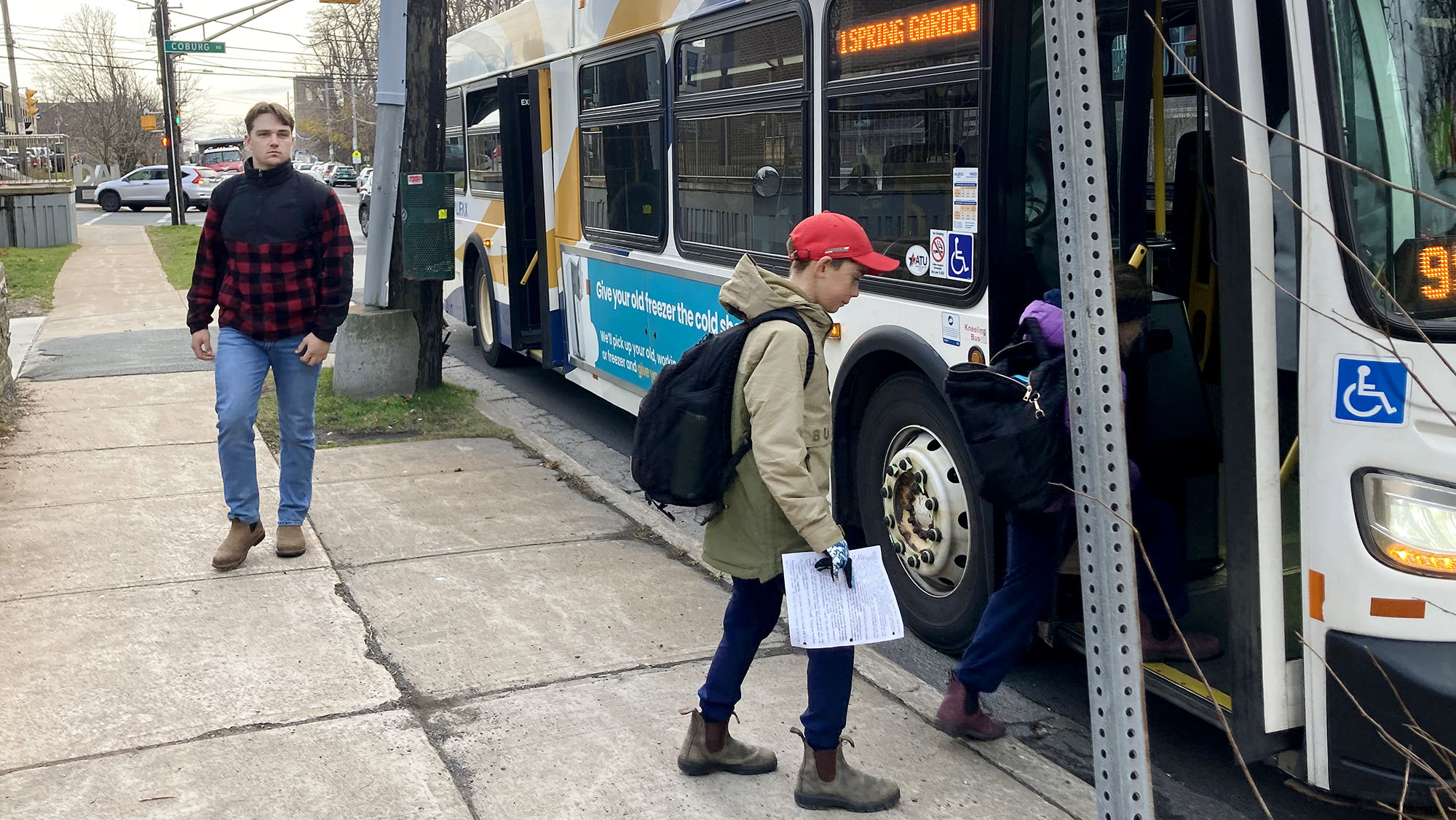Pandemic led to drop in Halifax Transit commuters: census
Spike in remote work, virus unease reasons for drop in bus ridership

caption
Many fewer riders are commuting to work via Halifax Transit, according to the latest census data. The number of transit commuters in Halifax was nearly cut in half between 2016 and 2021, a year into the COVID-19 pandemic.The number of Halifax commuters taking public transit to work has plummeted during the COVID-19 pandemic, according to census data released on Wednesday.
45 per cent fewer commuters — nearly 10,000 fewer Haligonians — are travelling to work via transit compared to 2016. The data was collected in May 2021, during one of Nova Scotia’s COVID-19 lockdowns.
The census report said the number of public transit commuters today is still well below 2016 counts across the country. Labour force data this year indicated a small bounce-back in transit use following the easing of restrictions.
One reason for the large decline in transit users is work-from-home arrangements becoming more common, said planning professor Ashan Habib of Dalhousie University. He researches travel behaviour and transportation planning.
“Remote work is now more acceptable, especially in the service sector,” he said.
In 2016, 13,580 HRM residents reported working from home. That count rose to 59,655 in 2021. Despite the rapid growth of Halifax’s population since 2016, the number of employed people in the city grew by just under 6,000.
Another reason for the drop in transit commuters, Habib said, is a lingering fear of COVID-19 among riders. He said factors such as crowding on buses have led people to either switch commuting methods or avoid travel to work altogether. The census said 97 per cent of Halifax Transit users commute by bus, the only other option being the ferry.
Habib added there wasn’t nearly the same drop in car use as transit. Commuters travelling in their own vehicles fell about 10.6 per cent in HRM since 2016, the census said.
“There needs to be more work done around making [transit] more attractive, safer and showing results are happening,” Habib said.
Halifax Transit is developing a rapid transit strategy and will soon use an app where passengers can pay fares. The service didn’t immediately respond for comment on Wednesday’s census data.
Halifax Transit doesn’t report commute-specific ridership numbers. However, it reported a 53.6 per cent decrease in ridership during the 2020-21 fiscal year. Boardings increased 11 per cent over the following year.
Last week, the federal and provincial governments announced Halifax Transit would receive $8.9 million to help offset revenue losses over the pandemic.
Beyond COVID-19
Halifax isn’t the only city to see declines in public transit usage during the pandemic in Canada. Public transit users nationwide fell from 2 million in 2016 to 1.2 million this past May. By comparison, the 12.8 million car commuters reported in May is similar to the 2016 count, according to the census report.
Jill Tobin reduced her use of buses during the pandemic, but not only because of COVID-19 concerns. Delays and cancellations from staff shortages, poorly-communicated route changes and more have made the service unreliable for her.
“The buses have just been getting really, really, really crappy. These days, if I can avoid the bus, then I do that,” Tobin said.
Before becoming unemployed recently, Tobin’s commute was from north Dartmouth to the Woodside area. It was about a 25-minute trip if buses ran on time. Otherwise, she said she’d often run late for work.
Halifax Transit has been listing trip cancellations and delays on its website since the summer to help alleviate staff shortages.
About the author
Luke Dyment
Luke Dyment is a Halifax-based reporter from Prince Edward Island. He has written for the Globe and Mail, The Signal and the Dalhousie Gazette....
